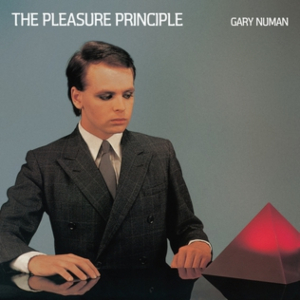Consumerism/capitalism culture can't function without false need, manufacturing Desire to create false needs for commodities. - Stratification created for those items, inequality, disguises the inequality.
Social Control VS. Freedom
Everyone is satisfied in the short term which fuels the illusionary idea of being free. The illusion of choice.
Members of the bottom of the social class believe they aren't through owning a big TV. This stops any revolutionary consciences because they believe they have it all and everything is gonna be alright. It's palliative, like a drug.
What do we actually need, not what we think we need, Real needs Vs False needs. None of any which are actually met by the Consumerism culture.
'Everything's all alright'
The rise of Mass production is intrinsically linked to Consumerism, it allowed for more and more things to be created. Byproduct of this is lots of meaningless stuff is created in the world. Out of this emerges a consumerist way of thinking which now has a stranglehold on society and it's conscience.
From this advertising is born, it makes you think the next big thing is what you need through publicity and branding. Advertising isn't the bad thing, great design comes from advertising, but what it's created, false desires is. It's the wider system which is to fault.
Freud, came up with the ideas that we suppress violence, sex and animal instincts with false need for items. To Freud we are totally irrational beings. As a species we are very animal, very destructive. To Freud the idea of civil society, is incompatible with our base desires because we can't ever be happy or freely act on our instincts.
Bernays, P.R was initially was an attempt to link the irrational desires, the ideas of Freud. Bernays had an amazing career and worked a lot with the CIA in South America, to orchestrate ideas on mass destabilisation of socialist countries was Bernays idea: Guatemala, Chile.
Because of P.R we are given the illusion of free choice, the free choice between a standard set of options which look as if they're an infinite array. It pacifies us momentarily. It's what Freud calls the 'Pleasure Principle'.
 |
| It satiated me momentarily. |
1:
'We are so accustomed to being addressed by these images that we scarcely notice their total impact' You can't escape publicity, its everywhere and it builds within your sub-conscience. Publicity always speaks of the future self and in the future tense, it's never of the present, yet publicity belongs to the moment, in the sense it is continually renewed.
You can never be happy, today. You'll always want the next best thing, and this is what publicity does. It's continuous cycle. False competition to drive sales we are given multiple choices but they are all the same in the end. 'Within publicity, choices are offered between this cream and that cream, that car and this card, but publicity as a system only makes a single proposal.'
This perpetuates the idea of that we are free, as a people by buying these products we are given the promise of transformation into a better person. 'It proposes to each of us that we transform ourselves, or our lives, by buying something more.' A more powerful, more envied and richer. Yet in reality we will be poorer having spent the money and still unhappy. We are shown people who have bought it and it has changed their lives, as a result we envy them, the idea of being envied is what drives us to consume the amount we do.
2:
Publicity in it's self cannot be too directly about the product, doing this gives the prospective buyer the feeling it is out of their grasp. 'The more convincingly publicity conveys the pleasure of bathing in a warm, distant sea, the more the spectator-buyer will become aware that he is hundreds of miles away from that sea and the more remote the chance of bathing in it will seem to him.'
'It is this which explains the absent, unfocused look of so many glamour images. They look out over the looks of envy which sustain them'
'Being envied is a solitary form of reassurance.'
'The happiness of being envied is glamour.'
'Publicity is about social relations, not objects.'
3:
'The purpose of publicity is to make the spectator marginally dissatisfied with his present way of life. Not the way of life of society'
'The power to spend is the power to live.'
'Those who have the power to become loveable.'
'Working class tends to promise a personal transformation through the function of the particular product it is selling (Cinderella); middle class publicity promises a transformation of relationships through a general atmosphere created by an ensemble of products (The enchanted palace.)
4:
'The process is reinforced by working conditions.'
'Glamour cannot exist without personal social envy being a common and widespread emotion. The industrial society which has moved towards democracy and then stopped half way is the ideal society for generating such emotion.'
'The gap between what the publicity actually offers and the future it promises, corresponds with the gap between what the spectator-buyer feels himself to be and what he would like to be.'



No comments:
Post a Comment